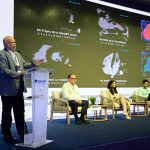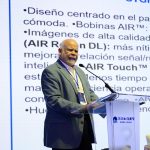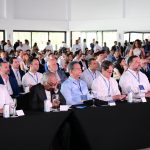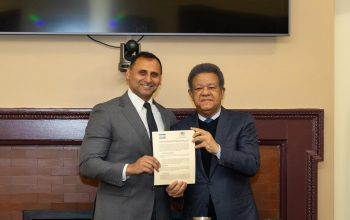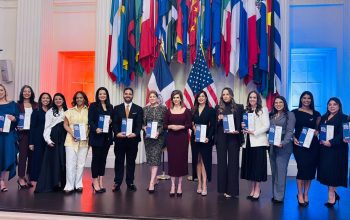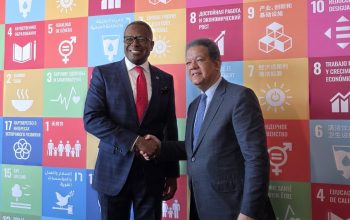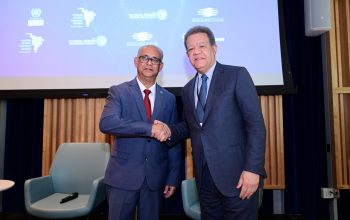news
Leonel Fernández Calls for a More Inclusive Artificial Intelligence That Empowers People
July 9, 2025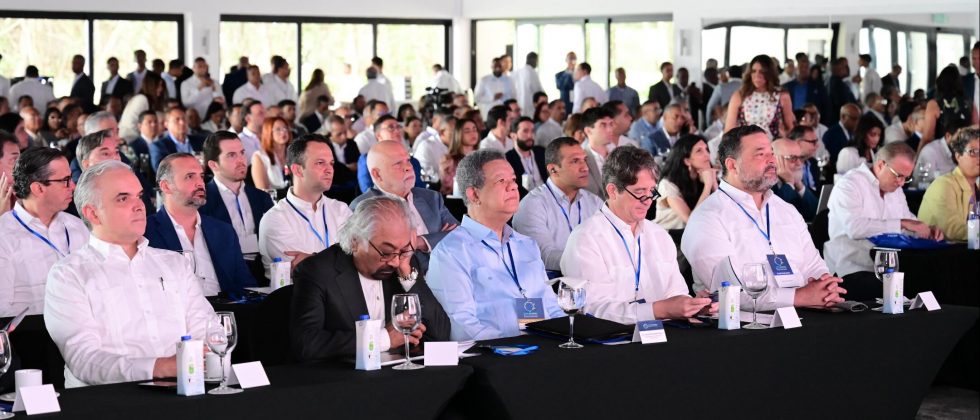
During the opening of the 5th Global Forum Casa de Campo, the former Dominican president delivered a historical overview of AI’s development and warned of its ethical, geopolitical, and societal challenges.
La Romana, Dominican Republic – In a thought-provoking and analytical speech rich with historical and technological references, former President of the Dominican Republic Leonel Fernández emphasized the urgent need for a more inclusive, sustainable, accessible, and regulated artificial intelligence—one that above all, empowers individuals. His remarks marked the official opening of the 5th Global Forum Casa de Campo, hosted by the Global Foundation for Democracy and Development (Funglode), taking place July 7–8 in La Romana.
Fernández outlined a timeline of AI’s evolution—from its origins with Alan Turing to the so-called “AI winters” of previous decades, culminating in today’s unprecedented acceleration fueled by technologies like GPT-4, Gemini, and Copilot. “We are witnessing a revolution that is redefining not only our daily lives but the very essence of the human condition,” he stated.
As President of Funglode, Fernández also addressed the ethical dilemmas and geopolitical tensions surrounding AI, pointing to the competition between the United States and China for global technological supremacy and the challenges of establishing effective international governance. “Both a lack of regulation and overregulation pose significant risks,” he warned.
He highlighted the rapid emergence of technologies such as autonomous vehicles, brain-computer interfaces, and predictive algorithms as signs of a profound transformation already underway.
Fernández concluded by advocating for a multi-stakeholder approach involving governments, the private sector, academia, and civil society to ensure that AI becomes a tool of inclusion rather than exclusion. “We hope this forum contributes to that goal by echoing these values, principles, and ideals,” he said.
About the Global Forum
Under the theme “The Future of Artificial Intelligence: Innovation, Ethics, and Global Challenges,” the 5th Global Forum Casa de Campo brings together international experts, scholars, business leaders, and representatives from public and private institutions to explore the impact of artificial intelligence across key sectors such as health, education, industry, culture, and security.
Among the international speakers are Dr. Sam Pitroda, Chairman of the Pitroda Group; Sayash Kapoor, Princeton University researcher and Mozilla senior fellow; and Dr. Douglas C. Ng from Harvard’s Digital Data Design Institute. Additional participants include experts from Google, MIT RAISE, Teachers College at Columbia University, and the Illinois Institute of Technology.
The program features specialized panels on topics such as personalized medicine, educational transformation, cybersecurity, agribusiness, and the creative industries. It also addresses the implications of generative AI on employment and public policy.
The event began on Monday with a welcome reception and continues today, Tuesday, with a full schedule of activities at the Marina Riverside Center.
In his opening remarks, Funglode Executive Director Marcos Herrera emphasized that the conversation around artificial intelligence “is no longer optional—it is unavoidable.” He noted that just two years ago, during a similar forum, the country was only beginning to explore the potential impact of AI. Since then, efforts have been made to advance a national AI strategy, introduce legislative initiatives, and establish a stronger international presence on the issue.
Herrera stressed that forums like this are essential to addressing structural risks such as job displacement, algorithmic bias, and automated disinformation, while promoting ethical innovation. “Think Tanks like Funglode have a responsibility to provide rigorous insight to policymakers and educate the public on how we want to coexist with these technologies,” he concluded.


